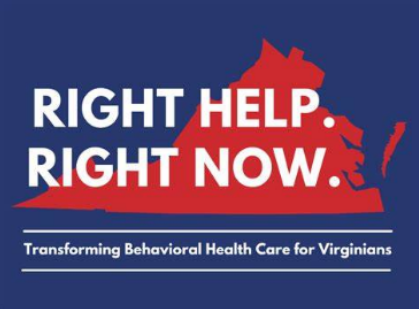Drug overdose and substance use affect all communities in Virginia. However, some communities may need more targeted drug overdose-related prevention and intervention strategies.
The Virginia Department of Health (VDH) developed the needs assessment tool to help identify which Virginia communities may need extra support from targeted drug overdose-related prevention and intervention strategies.
VDH uses this tool, along with other information, to carry out public health programs to reduce the harms associated with drug use:
- Naloxone distribution to local health districts and community partners.
- Comprehensive Harm Reduction programs, which are public health services to reduce the negative impact of drug use.
How to use this tool
The map shows Virginia communities that may benefit from additional resources to address drug overdose-related outcomes and substance use. An assessment score for each Virginia locality (counties and independent cities) is compared to the state score of nine (9). If a locality received a score of 10 or higher, it is considered at higher need for drug overdose-related outcomes and substance use. Localities with higher need may benefit from additional resources and support for prevention and intervention services.
VDH encourages use of this tool to learn more about drug overdose and related health outcomes in Virginia communities. These data can be used to inform public health action to reduce and prevent drug overdose. This tool does not assess a locality’s capacity or ability to implement drug overdose prevention and intervention strategies. Communities may also want to consider other locally available data, existing programs and partnerships, and known areas of increased need when determining the approaches and strategies that best fit their communities. Regardless of the assessment score, drug overdose and substance use impact all of our communities. Together with local and state partners, VDH's goal is to support all communities in their efforts to reduce the harms associated with drug use, as resources allow.
Instructions
- Data in the table can be sorted by locality, health district, or score. Click on the right side of the column title to sort the selected column.
- Please click the PDF icon to download the data table in a PDF.
How was this tool developed?
The tool was developed using data indicators related to drug overdose and misuse, other infectious disease outcomes, and socioeconomic indicators. Twelve indicators are used in the tool, including:
- Indicators directly associated with nonfatal drug overdoses (i.e. emergency department visits), fatal drug overdoses (deaths), and infectious disease outcomes associated with drug use (i.e., HIV and hepatitis C).
- Arrestees for drug/narcotic violation
- Socioeconomic indicators (i.e., poverty and unemployment) are included because these factors are related with a community being at higher risk for drug overdose and misuse.
Data used in this tool are from 2021. The tool will be updated when more recent data are available for each indicator.
For more information on which indicators are used can be found in the Scoring & Methodology document for this tool.
Frequently Asked Questions and Scoring Method
Find more information about the needs assessment tool through Frequently Asked Questions.
Learn how VDH created the tool including the indicators used and how each locality is scored in the Scoring & Methodology document.
Additional Resources:
- Substance Use Disorder Services, including information about Community Service Boards, which provide access to treatment for substance use disorder across Virginia.
- Substance Use Disorder Prevention and Recovery, which helps Virginians affected by substance use disorder find resources related to treatment and recovery.
- Virginia Opioid Abatement Authority
- Individuals can learn more about Virginia’s response to the opioid epidemic at Curb The Crisis.

In 2022, Governor Youngkin launched the behavioral health transformation plan: Right Help, Right Now: Transforming Behavioral Health Care for Virginians, outlining a three-year plan that all Virginians will be able to access behavioral health care and prevention and management services, including substance use disorder treatment and services.
